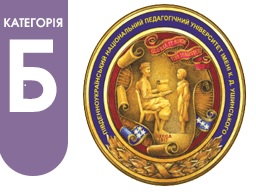Issue № 2. 2024 р.
Download the issue as one file
SECTION 1. POLITICAL INSTITUTIONS AND PROCESSES
Andriichuk T. S.
Public councils and other consultative and advisory bodies: functioning in conditions of full-scale war in Ukraine
Balan S. V.
National features of the informational state development
Burdiak V. I., Klym R. D.
Peculiarities of the Bulgarian government’s activities in the process of implementing the country’s European integration course
Vedenieiev V. O.
Peculiarities of the paradigmatic interpretation of the sociocultural foundations of the organization of political and legal institutions of the state
Ivanov M. S., Chuprin R. V.
Pro-Russian parties at the 2020 local elections in Ukraine: the order of candidates in the lists and gender quotas
Kozminykh A. V.
International and national «standards» for the prohibition of political parties under martial law
Kraiev O. V., Valiarenko Ye. M.
Technologies and populism: how Donald Trump manipulates the political agenda
Markitantov V. Yu., Suliatytska T. V.
Social basis of ruscism
Mushchenko Ya. O.
Features and classification of political factors of absenteeism
Panasyuk V. A.
The concept of Moscow – the Third Rome in the XXI century and Ukraine’s place in it
Sayenko I. V., Ostapchuk T. S., Samuilik M. M., Ostapchuk L.
Ukraine in the context of European security: summary and perspectives
Stoliarchuk L. B., Huley Yu. B.
Prospective directions for the development of cross-border cooperation in Ukraine
SECTION 2. POLITICAL CULTURE AND IDEOLOGY
Kovalevska T. A.
Peculiarities of political mythology in Ukrainian society
Petraiev O. S.
Islamic fundamentalism as a threat to the national security of Great Britain
Sokorinskiy V. O.
«Digital Panopticon» as a method of spreading digital totalitarianism and a threat to modern international relations
SECTION 3. POLITICAL PROBLEMS OF THE INTERNATIONAL SYSTEMS AND GLOBAL DEVELOPMENT
Babayev Ibrahim Mammad oglu
The role of the national oil strategy in the strengthening and development of independent statehood
Gurbanova Aygun
Human security as a key factor of international humanitarian law
Zherebiatnikova I. V., Kravchenko O. V., Gorbachov A. V.
Priorities of non-governmental organizations in regional subsystems of international relations
Ilnytska U. V.
Branding strategies in the international communications of modern states
Kokorev O. V., Yatvetska H. V., Savytsky A. Ya.
Borrowing experience: the way to an effective fight against corruption in Ukraine
Lepska N. V.
Resilience as a dynamic characteristic of the state in the conditions of modern geopolitical processes
Malıkova Zumrud Eldar gizi
Turkey’s participation in energy projects in the South Caucasus
Mankovskyi Ye. V.
The factor of Brexit in the foreign policy of Great Britain
Parkhomchuk O. S., Koppel O. A.
Cross-border cooperation and international relations in Europe
Chupis A. D.
“Information weaponization” as a technology of the Russian-Ukrainian war
SECTION 4. CURRENT ISSUES OF POLITICAL SCIENCE
Perepelytsia N. O.
Negotiations in conflict conditions: de-escalation strategies and compromise









